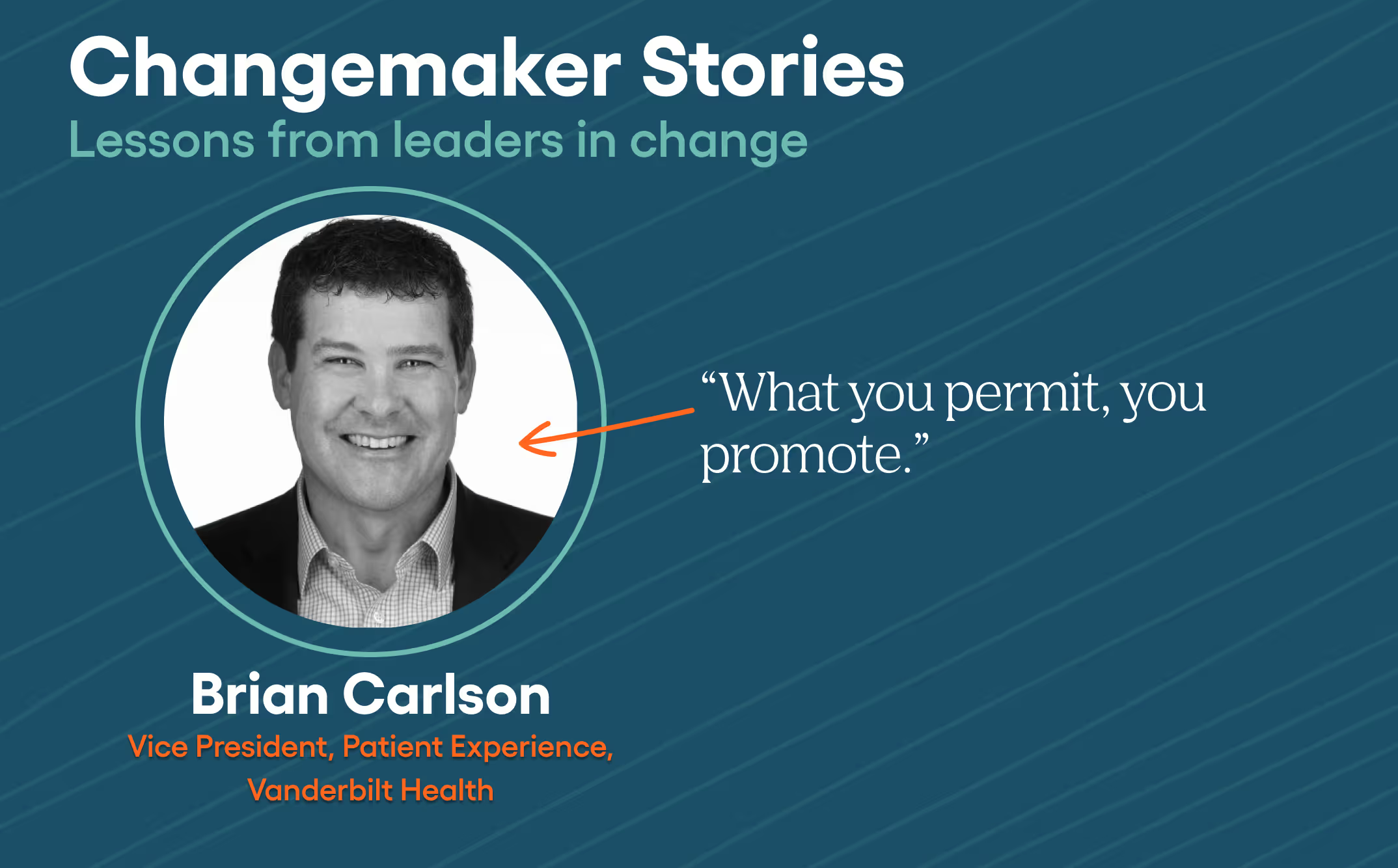

Welcome to Changemaker Stories from LOCAL – an ongoing series of personal interviews with leaders driving change across every industry and discipline. Because change shouldn’t mean going it alone.
Brian Carlson has been in healthcare for over two decades, and here’s what he knows for sure: the system is hard. It was hard before the pandemic, and it hasn’t gotten easier since. But what keeps him showing up every day is the people. Every day, real humans show up to help other humans. Lives are changed—and sometimes saved—because one person chose to lean into another. That calling, that mission, is what he says makes healthcare special.
Culture in healthcare isn’t optional—it’s oxygen. It’s not an abstract ideal. It’s the sum of every interaction, every decision, every behavior. Culture shows up in who we hire and who we promote. In how we recognize our successes. In how we respond to failure. In whether our actions align with our words. And in healthcare, that alignment matters more than most. Because when we miss the mark, real people get hurt—patients and staff alike.
I often tell new leaders: you are always on stage. I once read, “What you permit, you promote. What you allow, you encourage. And what you condone, you own.” If you let behavior slide that contradicts your organization’s values, you're not being neutral—you're reinforcing the wrong standard. Culture isn’t declared. It’s modeled. And every individual owns a piece of it.
Healthcare is no longer an individual sport. It’s a team game now—complex, fast-moving, and reliant on deep collaboration. That means leadership can’t be top-down. The best leaders don’t bark orders. They ask good questions. They listen. They synthesize complexity into clarity. They set aside ego and agenda for the benefit of the greater good. And then, they repeat themselves. Often.
You can’t just say something once and expect it to stick. During COVID, we learned this the hard way. People were scared, and our operations had to pivot overnight. I saw firsthand how critical it was to keep saying the same message—consistently, clearly, and with compassion. Not because people weren’t smart, but because they were overwhelmed. It’s not about how many times you say something. It’s about how many times it actually lands.
Change doesn’t start the day a decision is made. It starts the day it’s communicated. Too often, leaders debate a change behind closed doors for months… then expect the organization to turn around and implement it by next quarter. If it took you 6 months to decide, give your team at least 12 months to adapt. Anything less is unrealistic—and breeds resistance.
So when I see frustration or pushback? That’s not failure. That’s a signal. It means people are engaging with the change. And now it’s time to support them through it.
“You can't just educate the mind. You have to educate the heart."
I come back to that quote from Aristotle often: "Educating the mind without educating the heart is no education at all." Healthcare people don’t show up for money or perks. They show up because they want to matter. They want to be part of something bigger. And our job as leaders is to remind them that they already are.
That reminder doesn’t always look like a speech. Sometimes it’s just giving someone the story of their impact. I believe that if you don’t give your people a narrative, they’ll make one up. And often, that story is less generous than the truth. Leaders need to write stories that are real, repeatable, and reaffirming.
Want to know how your culture is doing? Bill Marklein talks about culture being evident in employees’ hearts and stomachs on Sunday nights. So ask yourself this: How do you feel on Sunday night about Monday? And how do your people feel on Sunday night about Monday morning? That’ll tell you everything you need to know.